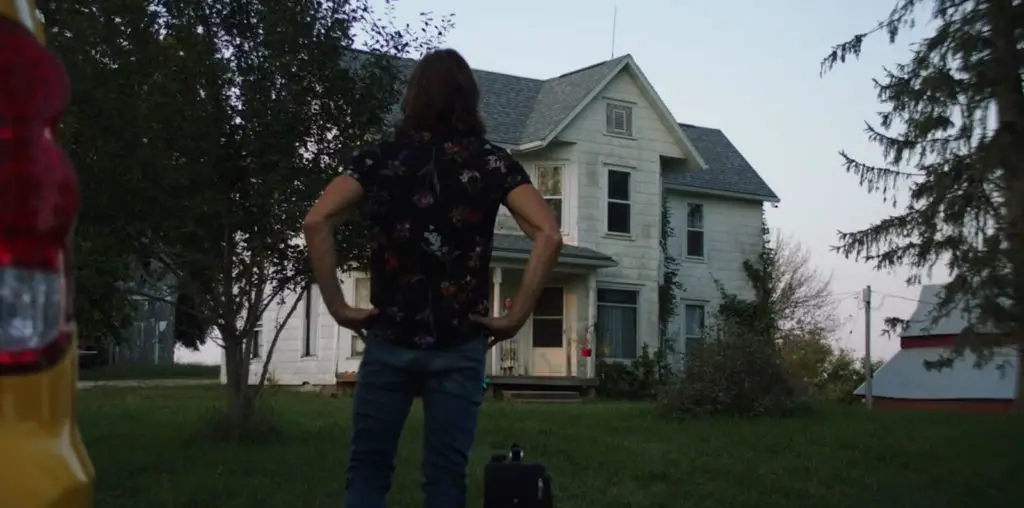
I’ve always had a theory that there is no such thing as a good ‘chick flick’. In that, I meant that a chick flick was by nature a bad film, made by people who knew it was lacking but expected women to flick to it anyway because it was “about womens’ issues”. Simple example – “One True Thing” was a real movie, while “Stepmom” was a ‘chick flick’. But, instead of further dissecting the genre (that will be for another day), let us start the week of Valentine’s Day by singling out a few quality films that may be labeled ‘chick flicks’ by the critical community, but rise above that title by being good.
“Sisterhood Of The Traveling Pants” (2005)
Why it works – Because this adaptation of the popular young adult novels plays like a real drama, with no excuses made for its young cast or PG rating. In many ways, its characters are actually far more mature and three-dimensional than those in many Oscar-bait adult dramas. All four actresses shine, but Blake Lively (in basically her first professional acting job) and America Ferrera have the meatiest story lines. When Lively’s overly driven Bridget regrets sleeping with her older soccer coach, they both take equal responsibility for the mess they’ve made. No one is a victim or victimizer based on their gender. Ferrera’s storyline, involving her bitterness at her father (Bradley Whitford) remarrying into a very white new family, provides the climax, and the finale is far more touching than you’d expect. In this world, these four girls are best friends not because they shop for shoes and talk about boys (Alexis Bledel’s adventure in Greece is the only storyline specifically about romance), but because they are actually there to help each other with life’s struggles.
“Return To Me” (2000)
Why it works – This Bonnie Hunt directed romantic comedy belongs on a pedestal next to “When Harry Met Sally” and “Annie Hall”. Why? Simple, this is the rare romantic comedy that actually shows the couple (David Duchovny and Minnie Driver) actually getting to know each other. Unlike most romantic comedies which basically boil down to ‘you’re hot… I’m hot, let’s pursue each other for the rest of the movie’, this one actually takes the time to form a real personal chemistry between the widowed doctor and the waitress who ended up with his late wife’s heart. Unlike many romantic comedies where you fear for the future of the couple, this film works because you know that if they can survive the initial courtship, they’ll stay together forever. Bonus points – when his wife dies in the opening scenes, Duchovny performs one of the most realistic weeping scenes I have ever seen from a male movie star (loud tears, gasping for breath, snot pouring out of his nose) which makes the moment that much more effective.
“Mean Girls” (2004)
Why it works – I discussed this one in a prior essay involving female escapism, basically alleging that it actually follows the template for the male escapism genre. Personal thesis arguments aside, this is still one of the very best movies ever made about high school girls. Lindsey Lohan deservedly became a star (regardless of what happened afterward), and Rachel McAdams and Amada Seyfreid used this as a building block toward longterm careers (poor Lacy Chabert can’t quite break out). Writer and co-star Tina Fey proved she could write smart stories and build fictional worlds outside of the sketch realm, paving the way for “30 Rock” and general global domination. This is the rare female driven film where getting the guy is not the primary or even secondary concern. Rather, the goal in this picture is simply remembering how to be a decent human being. And it’s also quite funny.
“13 Going On 30” (2004)
Why it works – This theoretical female variation on “Big” actually surpasses the Tom Hanks classic for emotional pathos. If Tom Hanks snagged an Oscar nomination for basically playing a ten-year old, then Jennifer Garner deserved a nod too for successfully playing a thirteen-year-old trapped in the body of her future thirty-year-old self. While this is a more straightforward romantic comedy, where snagging the guy eventually becomes the primary concern, the emotions are more realistic and the tone is more somber than you’d expect. Plus, Mark Ruffalo once again brings a gravity and depth to the rom-com traps that make the movie better than it otherwise might have been (“Rumor Has It” and “Just Like Heaven” may not be good movies, but he singlehandedly makes them watchable).
At heart, this is a dark comedy about a young woman who loses seventeen-years of her life, only to take up and realizes that she became a pretty terrible human being in those missing years. The act of snagging the childhood friend that she mistreated becomes as much about redemption as romance. But the film dares to suggest that she has no right to that redemption if it comes as the expense of other peoples’ happiness. Until the very final moments (which, intentionally or not, equate total happiness with winning the guy), this is one of the darkest and deepest romantic comedies out there.
